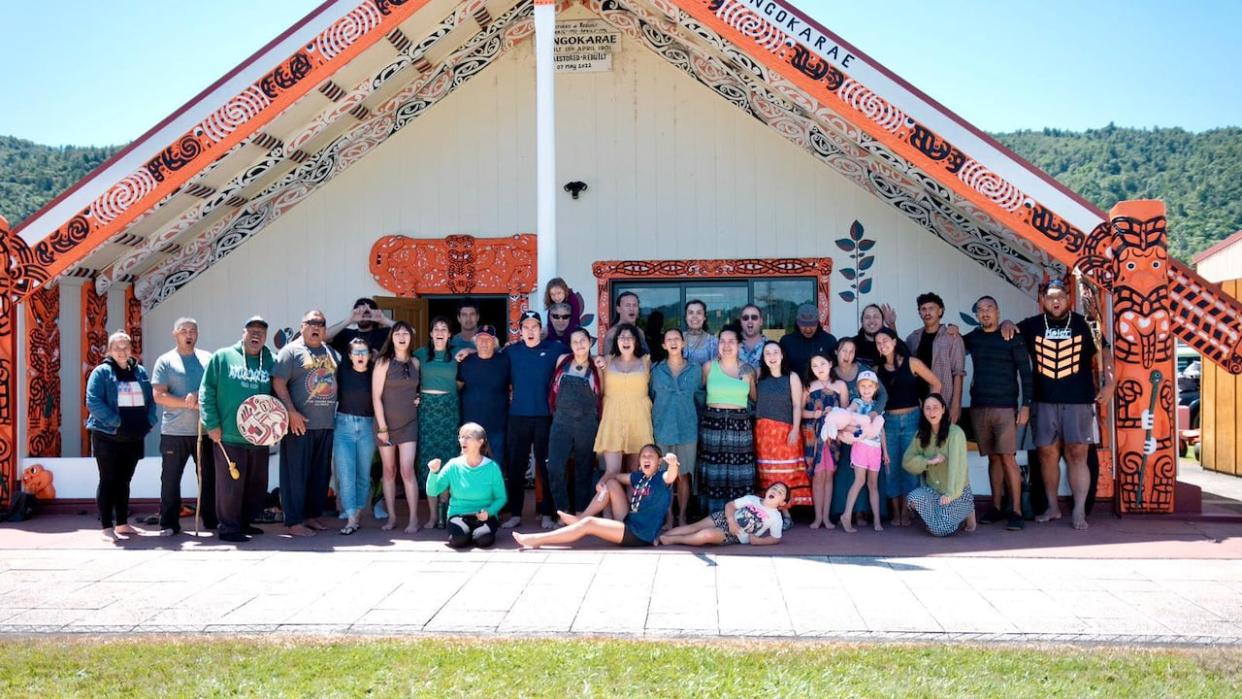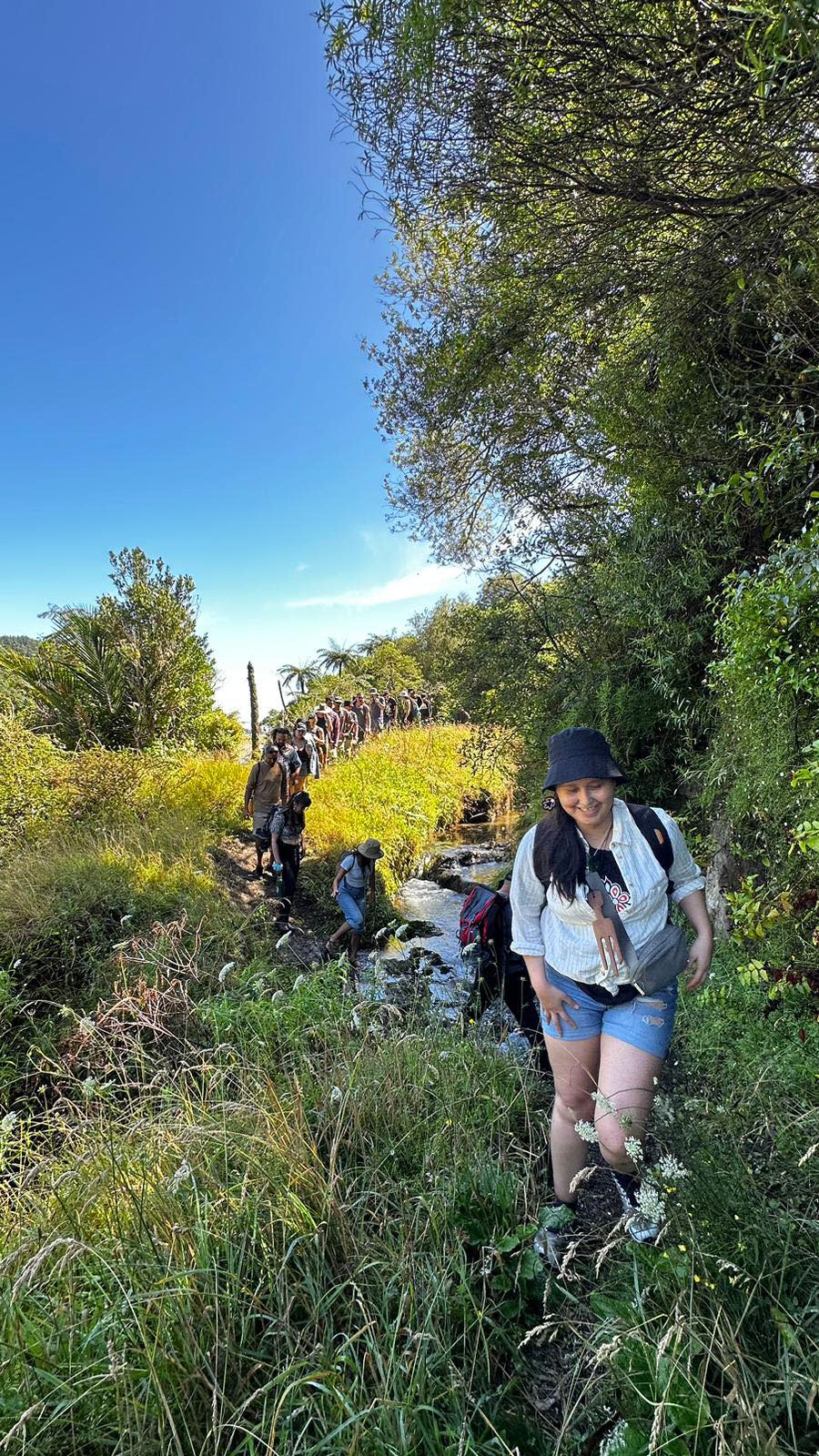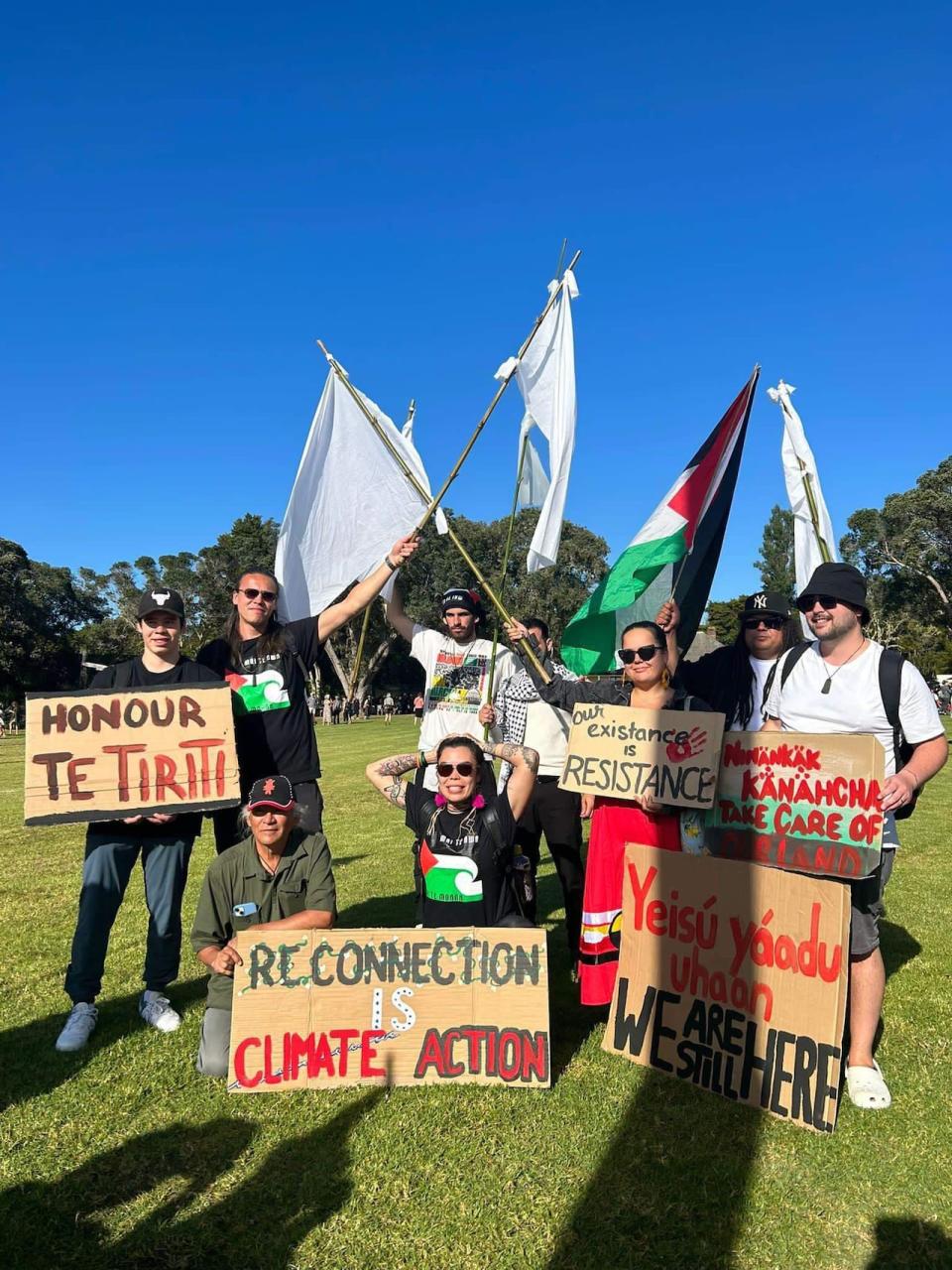Yukoners head home after 'transformational' Indigenous exchange in New Zealand

A group of Indigenous Yukoners say they've found their voice, through time spent with a remote Māori community in Aotearoa New Zealand.
About 25 Yukon youths and leaders are starting the return journey from a three-week exchange.
The group evolved out of the Yukon First Nations Climate Action Fellowship. Members travelled to further the climate action plan they've spent the last few years developing, called "Reconnection Vision."
Much of their time in New Zealand was spent in Te Urewera, near the east coast of the country's North Island, where they were hosted by the group RIVER and Ngāi Tūhoe, which is a Māori iwi, or ancestral group.
Jen Mierau, from the Tr'ondëk Hwëch'in First Nation in the Yukon, said she didn't know what to expect, but the time with Ngāi Tūhoe shifted her perspective.
"It was kind of a cultural shock to us because we're used to living in an 'individual' world...living, working and just focusing on our own needs," she said.
"Tūhoe people ... live mostly in an un-colonized, structured, world. So I feel we learned a lot from that, by opening up and helping others."
She said throughout the "nurturing" time spent with the Tūhoe people, there was also plenty of time to get to know one another, playing games and hiking.
"The ancestral knowledge that their people offered to us — it goes way deeper than society's understanding that their people have cultivated this land for many, many years ... They were able to teach us so much."

A hiking trip in Te Urewera, near the east coast of New Zealand's North Island, where the group experienced Ngāi Tūhoes' 'beautiful sacred lands along the river.' (Submitted by Jocelyn Joe-Strack)
Dustin McKenzie-Hubbard, a citizen of Champagne and Aishihik First Nations in the Yukon, said the Tūhoe people were strong, powerful and deeply connected to the land.
"They had some youth there, a lot younger than us, and they were so entrenched in the knowledge of the land. It was very inspiring how connected even the young young kids are...We had one young kid that was just grabbing all these berries for us, getting us to try them."
The climate crisis
The groups spent time discussing how climate change is affecting their respective homelands, and what action they can take.
McKenzie-Hubbard said they experienced first-hand how New Zealand's summers are getting hotter.
"Yesterday was the hottest day that we've had so far. There were warnings. With the ozone layer being depleted here, it's really affected a lot of people. We saw a lot of ambulances. We ran from shade to shade, it was that hot," he said.
"Listening to their elders talk about how the seasons were here before, and compared to it now, it's night and day difference."
Jen Mierau said the trip highlighted to her the importance of listening to people who live on their land, "because they understand their land the most."
"It was [an] opportunity to also make changes within ourselves, to think about the things that we do, and how we treat the land as our mother and also honouring her."
For McKenzie-Hubbard, a key experience was spending time with Te Whānau-ā-Apanui — an iwi based on the east coast of the North Island.
He said every marae — a traditional meeting house — was "amazing" to be at, and when some members of the group faced health challenges, the people of Te Whānau-ā-Apanui went out of their way to help.
"They were so, so supportive and they they made us feel safe and supported and we were fed so well. We were treated so very well. I can't thank them enough for that feeling that we had there, that feeling of safety."

The group learning about Waka in Tauranga. Jen Mierau, second from left, says the ancestral knowledge that people offered 'goes way deeper than society's understanding that their people have cultivated this land for many, many years.' (Supplied/Jocelyn Joe-Strack)
Waitangi Day
At the end of the trip, the group travelled to Waitangi, in the country's northernmost region.
They were there on Tuesday for Waitangi Day — which is when the country commemorates a founding agreement signed between settlers and iwi in 1840. At the treaty grounds, where the signing took place, thousands gather each year for speeches and reflection.
The Yukon group took part in a peaceful protest or "art collaboration," organised by Māori activist Tāme Iti.
"It very powerful being part of the demonstration and holding our flags and our signs and talking with the leaders there and being able to listen to their prime minister speak," McKenzie-Hubbard said.
"We would sit and just hang out and talk to people and listen to their stories."
He said he was moved by the poetry he heard at the protest.
"I teared up for most of them. It was so relatable and beautiful. It stoked the fire in a good way and it was beautiful."

At the Waitangi treaty grounds the group took part in a peaceful protest or 'art collaboration,' organized by Māori activist Tame Iti. Dustin McKenzie-Hubbard, right, said he was moved by the poems that people shared there. (Supplied/Jocelyn Joe-Strack)
'We don't want the vision to just sit on a shelf'
As the group returns to the Yukon on Wednesday, they're reflecting on how they can apply what they've learnt to their lives in the North, and to implementing the Reconnection Vision climate action plan.
"A lot of us are very passionate and moving forward and how we can implement change for our communities and for the Yukon as a whole," Mierau said.
"We want to keep the conversation going. We don't want the vision to just sit on a shelf.
McKenzie-Hubbard said the Yukon group includes people who work in different fields, such as education, governance, or social work.
"A lot of us are learning our languages so that we can really help shift our world views from what we've experienced nearly most of our lives," he said.
Mireau said the trip had been a "gentle, but transformational" process.
"I'm feeling a lot lighter, and [looking forward] to bringing this all home and taking it all in," she said.

